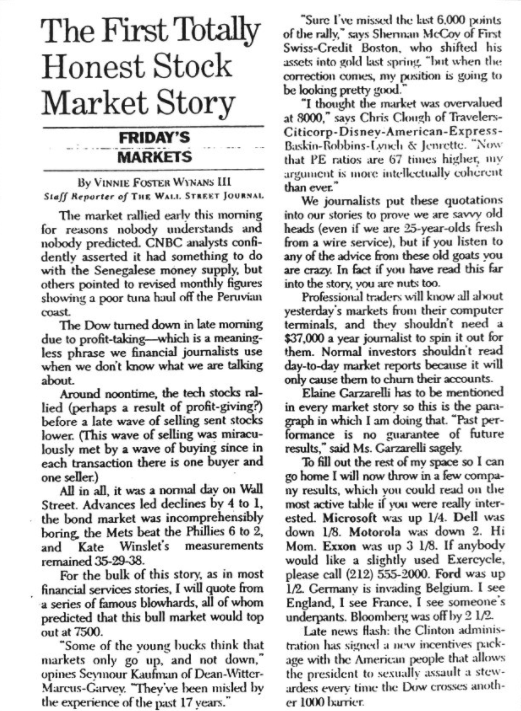What We’re Reading
Here are a few good articles the Collaborative Fund team came across this week.
Active patience
A great point by Brent Beshore:
The temptation to look and feel busy is real and ever-present, especially when you’re young and trying to prove your value. Early-on, we fell prey to it like most do. We intervened unnecessarily in portfolio companies to help “save the day” and listened to low-probability pitch after pitch to make sure we didn’t miss something. We had packed schedules, big to-do lists, and zero time to think.
If you read our 2016 annual letter, you know we didn’t make an acquisition last year, and, so far in 2017, we haven’t closed one either. From a surface-level standpoint, it looks like we’re either too selective, or complacent. Neither could be further from the truth. Patience is a luxury that few enjoy and we relish it. As we’ve said before, we’re happy to do five deals in one year, or one deal in five years. It just comes down to finding the right economics, personalities, and circumstances.
Social media overload
Sundar suggests a more sustained, interactive approach to social media: Finish reading every post before moving on to the next one, but not before commenting, tweeting, or posting your thoughts about it. Through that degree of enhanced engagement, you not only limit the volume of your social media intake—one can only comment so many times—but you develop a better sense of which issues really inspire, enrage, or matter most to you.
Patterns and theories
I love this:
Shout to @billsweet for making me this GIF, which is so killer. pic.twitter.com/kwSMuECV0o
— Downtown Josh Brown (@ReformedBroker) August 23, 2017
Intuition
The limits of AI:
As a human, the challenge is to find any pattern at all. Of course, we have intuitions that limit our guesses. But computers have no such intuitions. From a computer’s standpoint, the difficulty in pattern recognition is one of surplus: with an endless variety of patterns, all technically valid, what makes one “right” and another “wrong?”
Testing
A good problem to have, but a problem nonetheless:
There are too many experimental cancer drugs in too many clinical trials, and not enough patients to test them on.
The logjam is caused partly by companies hoping to rush profitable new cancer drugs to market, and partly by the nature of these therapies, which can be spectacularly effective but only in select patients.
Honesty
Jason Zweig shared a classic satirical market update:

Have a good weekend.